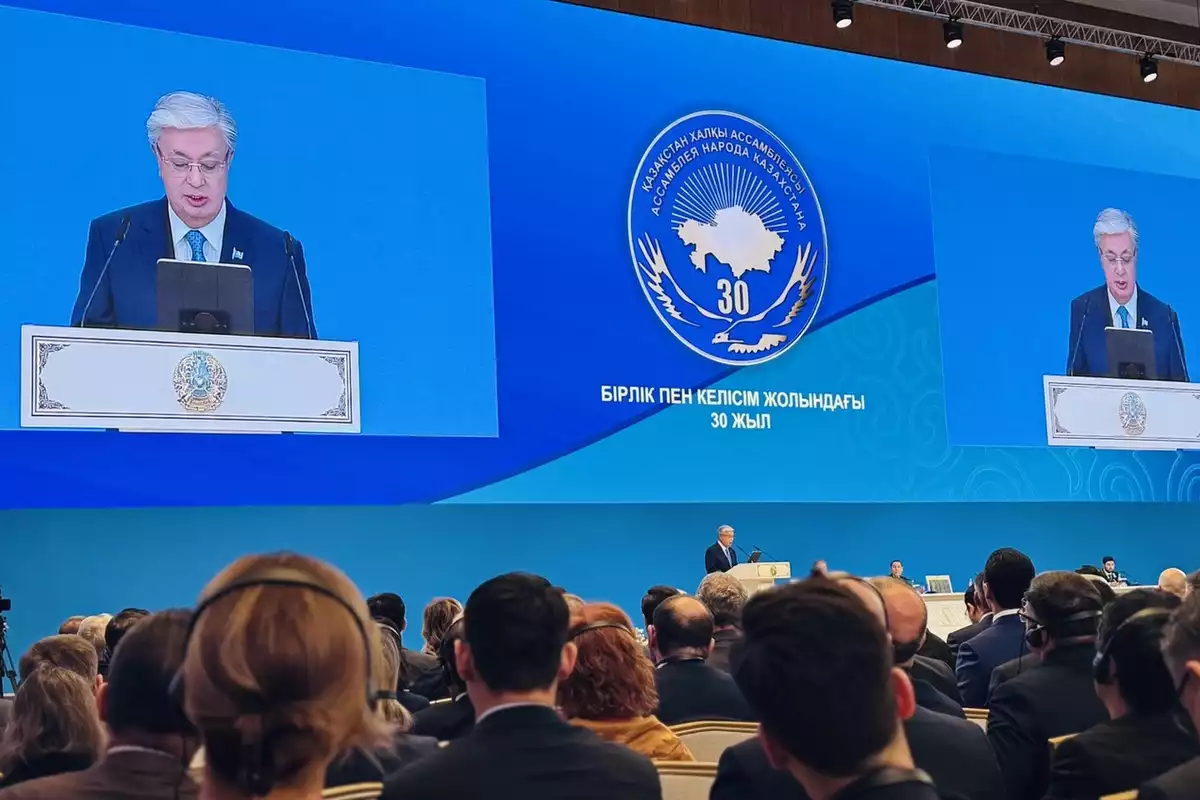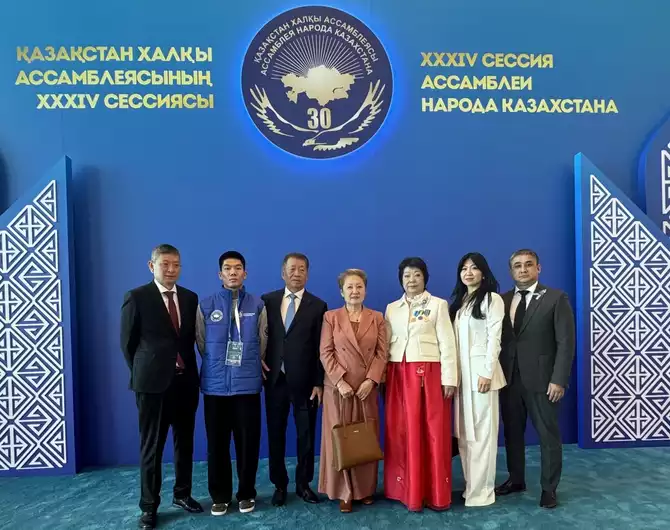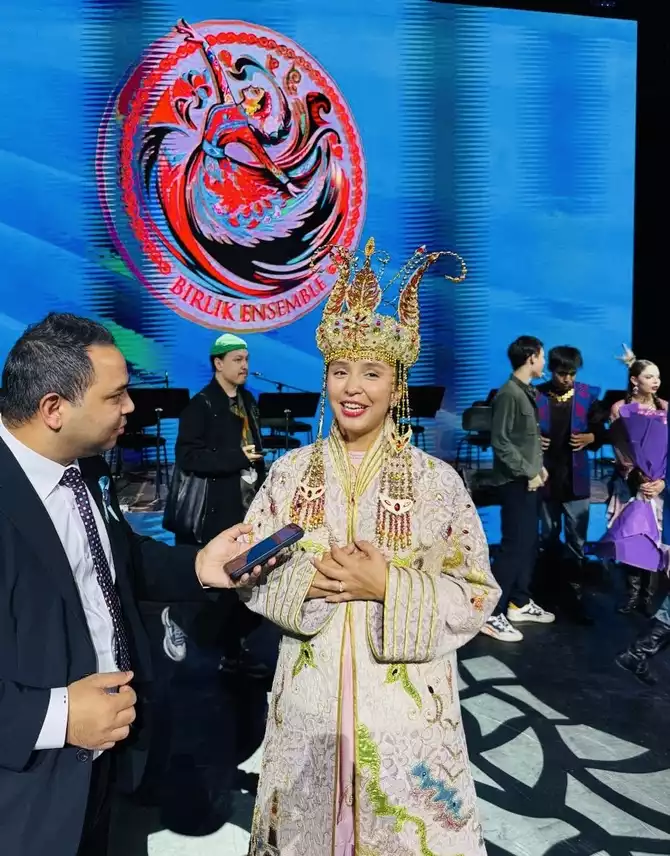
Photo by Sanjay Kumar/ The Korea Herald
On Thursday, Kazakhstan pledged to strengthen interethnic harmony in celebration of the 30th anniversary of the Assembly of the People of Kazakhstan.
Taking place at the Palace of Peace and Reconciliation in Kazakhstan's capital Astana, the assembly discussed the nation's statehood and societal cohesion, The Caspian Post reports citing foreign media.
The APK was established on March 1, 1995, by the first President Nursultan Nazarbayev, and has evolved from an advisory body into a constitutionally recognized institution of the Kazakh government in 2007.
Chaired by Kazakh President Kassym-Jomart Tokayev, the assembly brought together more than 2,000 members from diverse ethnic, social and professional backgrounds.
“Only where there is unity, there is life,” remarked the president at the assembly’s 34th session, pointing to the value of unity amid global uncertainty.
“Some ethnocultural associations have gathered unique private collections of art and ethnography that should also become part of the national cultural heritage,” Tokayev suggested.
“Kazakhstan is home to nine Russian drama theaters and four unique ethnic theaters - Uighur, Korean, Uzbek and German,” said Tokayev.

According to the president, Kazakhstan ensures equal opportunities regardless of ethnicity, language, or religion, calling the commitment to fairness the foundation of a just state.
Kazakhstan’s multicultural identity is reflected in its rich cultural infrastructure, including nine Russian drama theaters and four ethnic theaters - Uighur, Korean, Uzbek, and German, he said, applauding ethnocultural associations.
Organizers say that the assembly unites people who value social harmony with over 1,000 ethnocultural associations, APK institutions, and community initiatives such as councils of mothers and elders, a youth wing and volunteer-driven centers.
“We are different, but equal,” Tokayev said, underscoring that all ethnic groups living on Kazakh soil have the opportunity to fully develop their language, culture and traditions.
But he also warned against provocations targeting ethnic harmony.
“Any provocative actions aimed at inciting discord in our society or destabilizing the situation will be stopped and punished by law,” he said, reinforcing that “ideological strife is absolutely alien to our (Kazakh) worldview.”

Citing Kazakhstan’s historical tradition of hospitality, Tokayev recalled how the nation received millions who resettled during the Soviet era.
Kazakhstan has a long history of people moving there from other regions. In the 20th century, many Russians, Slavs and other Soviet ethnic groups arrived in several waves. In the 1930s, many came to work in factories, while others were forced to move due to Stalin's purges.
In the 1950s and 60s, more people arrived as part of the Virgin Lands campaign. During World War II, Kazakhstan became a safe place for over a million people escaping the Nazis, and was also a destination for groups, such as Crimean Tatars, Germans, Koreans, and North Caucasus Chechens and Ingush who were deported from Russia.
“Kazakhs accepted them as brothers. Millions of their descendants are now full-fledged, responsible citizens of Kazakhstan,” he said.
“I have instructed the Akims to regularly hold meetings on interethnic and interethnic relations,” said Tokayev.
An Akim is the head of a local government in Kazakhstan and Kyrgyzstan who looks after administrative duties to implement policies within their region.
“All ethnic groups living on Kazakh soil have the opportunity to fully develop their language, culture and traditions," Tokayev highlighted.
Meanwhile, he also underscored Kazakhstan’s friendly ties with Russia, China, Kyrgyzstan, Uzbekistan, Turkmenistan and Azerbaijan.

“There are no unresolved issues between us,” he noted, adding that regional cooperation is a hallmark of Kazakhstan’s diplomacy.
To mark the 30th anniversary of the Assembly of the People of Kazakhstan, citizens were awarded state honors by presidential order for promoting peace, friendship and interethnic harmony.
"We need unity. Unity means happiness, kindness, support for each other, and love for people,” Anel Marabayeva, one of the recipients of the President's award, told The Korea Herald.
“Interethnic coexistence, unity, kindness, and mutual support are the backbone of a diverse society,” she added.
Share on social media